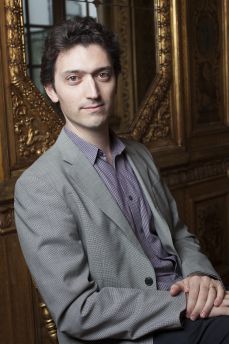Nathan Perl Rosenthal

dates de séjour
discipline
Fonction d’origine
Institution d’origine
pays d'origine
projet de recherche
The Age of Revolution: A Cultural History
“The Age of Revolution: A Cultural History,” will be the first monographic cultural history of the age of revolution (circa 1760-1815). The goal of the project is to use a broad base of original sources to reconceive the transnational revolutionary movement of the age of revolution as a phenomenon based primarily in shared culture, rather than shared politics. It argues that a widely disseminated eighteenth-century Atlantic culture, with communicative practices of letter-writing, sociability and rhetoric at its heart, became in the time of political revolution a means to create imagined transatlantic political communities. Shared cultural practices enabled patriots around the Atlantic to forge bonds with one another even when their political notions and practices were incommensurate or even contradictory.
This view of transnational revolution advances the field in two ways. First, it can comfortably encompass the revolutions beyond the North Atlantic and include the full range of revolutionary practice and ideology in the period. At the same time, it invites us to reconceive the age of revolution’s meaning: the era’s transnational revolutionary spirit, I argue, is best understood as a cultural imaginary rather than as a movement bound together by shared political ideology. This finding, in turn, suggests the need to reconsider the age of revolution’s traditional image as the seed-time of modern republican politics.
biographie
Nathan Perl-Rosenthal is Assistant Professor of History and Spatial Sciences at the University of Southern California. His first book, Citizen Sailors: Becoming American in the Age of Revolution (Belknap/Harvard, 2015), won the Society for French Historical Studies’ Gilbert Chinard Prize. He has published a number of scholarly essays, including articles in the American Historical Review and the William and Mary Quarterly, and his writing for general audiences has appeared in the London Review of Books and other venues.










